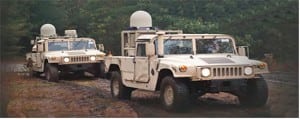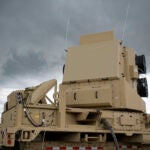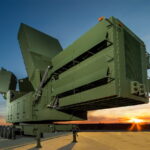
Seventy-one members of the House have written Defense Secretary Chuck Hagel expressing their “strong support” for the Warfighter Information Network-Tactical (WIN-T) and The Handheld, Manpack, Small Form Fit (HMS) Radio. “We understand the significant pressure being placed on the budget of the U.S. Army,” members wrote. "Nonetheless. WIN-T and HMS cannot sustain additional cuts--including cuts from reprogramming.” WIN-T Point of Presence (PoP) and Soldier Network Extension (SNE) Courtesy General Dynamics Specifically, draft reprogramming documents are circulating that appear to take…

 By
By 











